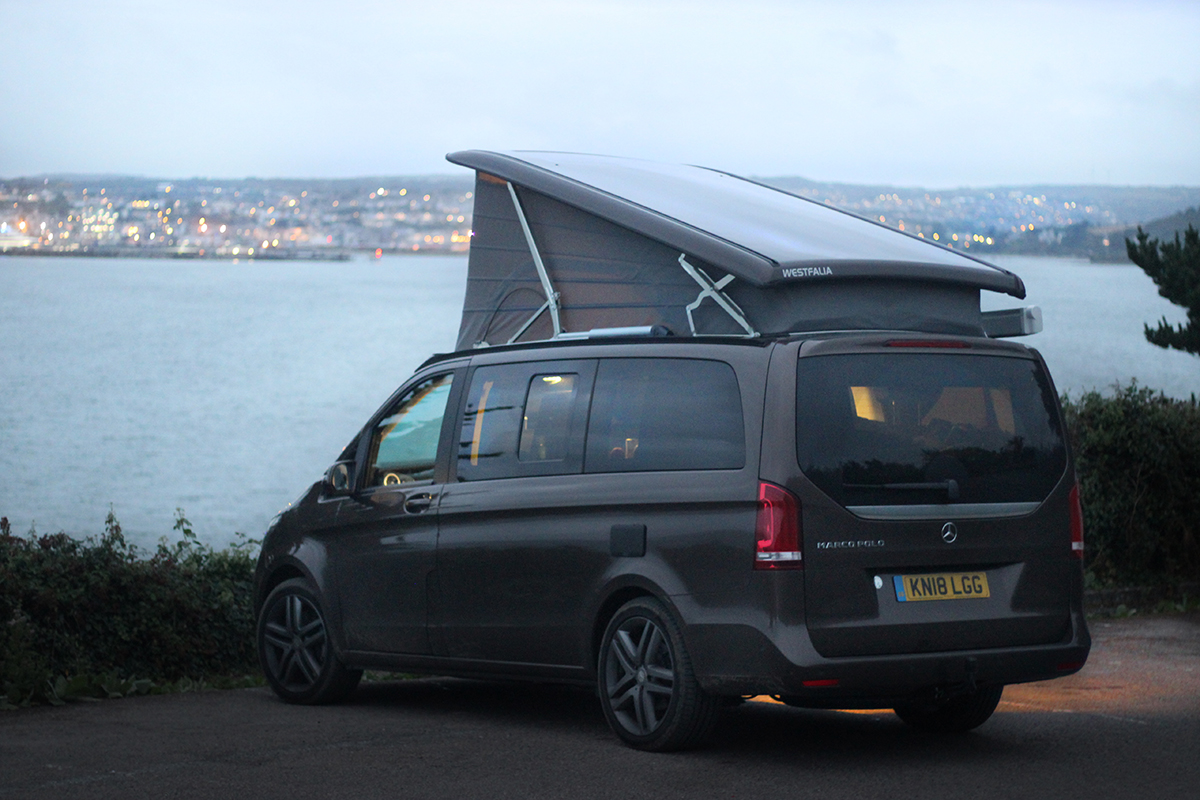
The Mercedes-Benz Marco Polo parked on a clifftop above St. Mawes, Cornwall. Image by James Houston
The Mercedes-Benz Marco Polo camper van provides a luxurious and hassle-free alternative to camping, as Digital Editor Millie Walton discovered on a road trip around Cornwall
At its best camping means seclusion, starry nights, wilderness, mugs of hot chocolate, campfires and barbecues; at its worst it means pouring rain, crowds of people, and hours of packing and unpacking. Usually, it’s a combination of the two. As children, we would drift around, teeth chattering in our damp pjs hoping for an invitation or even just a glimpse inside one of the gleaming camper vans that promised unimaginable luxuries: warmth, electricity, a real bed. Last summer, the childhood dream came true in the form of the Mercedes-Benz Marco Polo.
Needless to say that the Marco Polo is a lot smarter than most of the camper vans I encountered as a child; in fact, if you were to pass it by unaware, you’d most likely think it was a luxurious people carrier rather than a camper. It’s sophisticated and spacious, rather than bohemian and cosy.
Follow LUX on Instagram: the.official.lux.magazine
On Friday evening with a fridge full of food and cupboards stuffed with crockery and bedding, we set off from London to Cornwall, or rather to Blackdown Hills in Devon where we had booked in for a night at a farm campsite to break up the journey. Aside from this one reservation, our general plan was to have no plan, to find the most beautiful, remote cliff-edges and watch the sunset on the horizon with a glass of wine. The real joy of a camper van is the absence of hassle; it’s all there, ready to go, whenever you want it.
The drive down was incredibly comfortable. It’s a large vehicle, but it’s easy to control with excellent visibility; little flashing lights appear in the wing mirrors when another car is approaching and a 360-degree camera system that makes reversing and parking actually fun. We had a few hairy moments of sliding cutlery on sweeping bends, and had to do a bit of rearranging in the back, but all in all, it was a pleasure to drive. Perched high up on the driver’s leather arm chair, you have the sense of commanding the road.
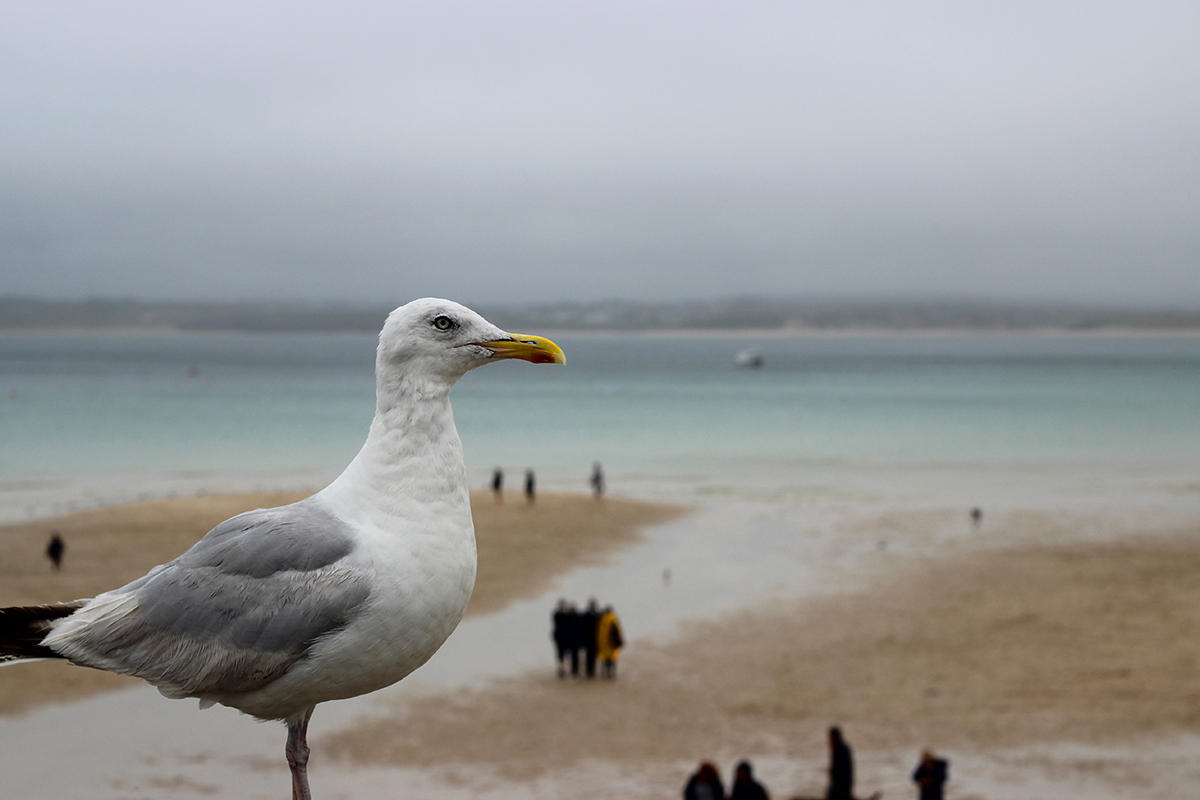
A seagull in St. Ives, Cornwall. Image by James Houston
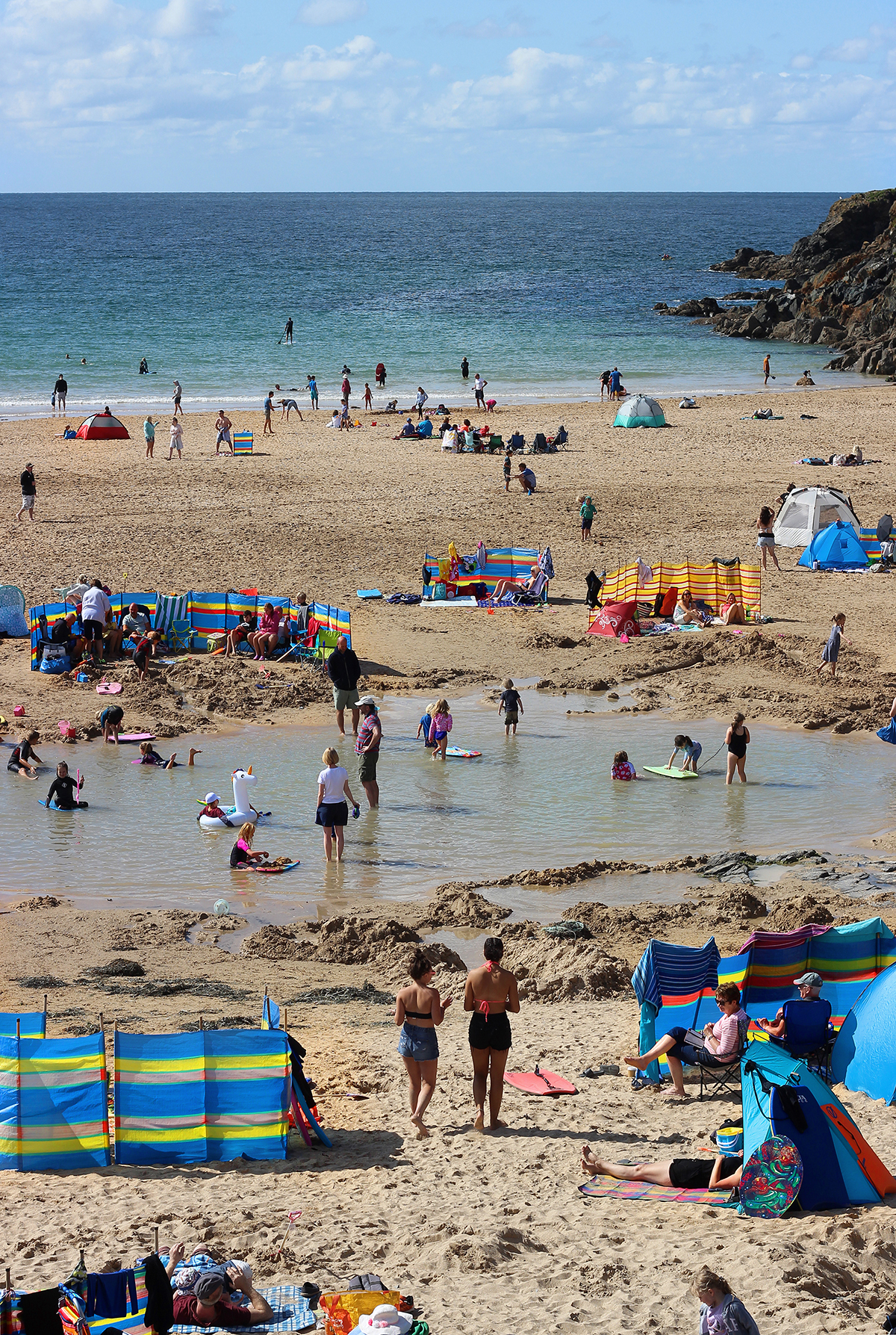
Summer on Padstow beach, Cornwall. Image by James Houston
The Marco Polo’s interiors are high-tech, sleek and shiny. There’s a lot of leather, chrome and metallic surfaces; it reminded us of being inside a yacht, but with the roof up, it is spacious enough to stand upright, which makes cooking a lot easier. The first night, we struggled working out which button did what and regretted not studying the manual on the way down. In an ideal world, you’d be given a quick demo before you set off; I’m convinced there were lots more exciting features that we didn’t discover.
Read more: Savoir Beds’ MD Alistair Hughes on the value of craftsmanship
It might not be the most homely of spaces, but the layout has been carefully considered to maximise space. There are plenty of hidden cupboards and drawers, and the option of two double beds: one ‘upstairs’ in a pop roof (you push a button and it raises electrically) and one ‘downstairs’ formed from the rear seats, which flatten at the touch of another button. We preferred the downstairs bed because it was warmer, but the upstairs mattress is more comfortable owing to the fact that it is actually a mattress rather than two slightly lumpy leather chairs. Each morning, after a cooked breakfast, we hopped into the front and hit the road – easy as that.
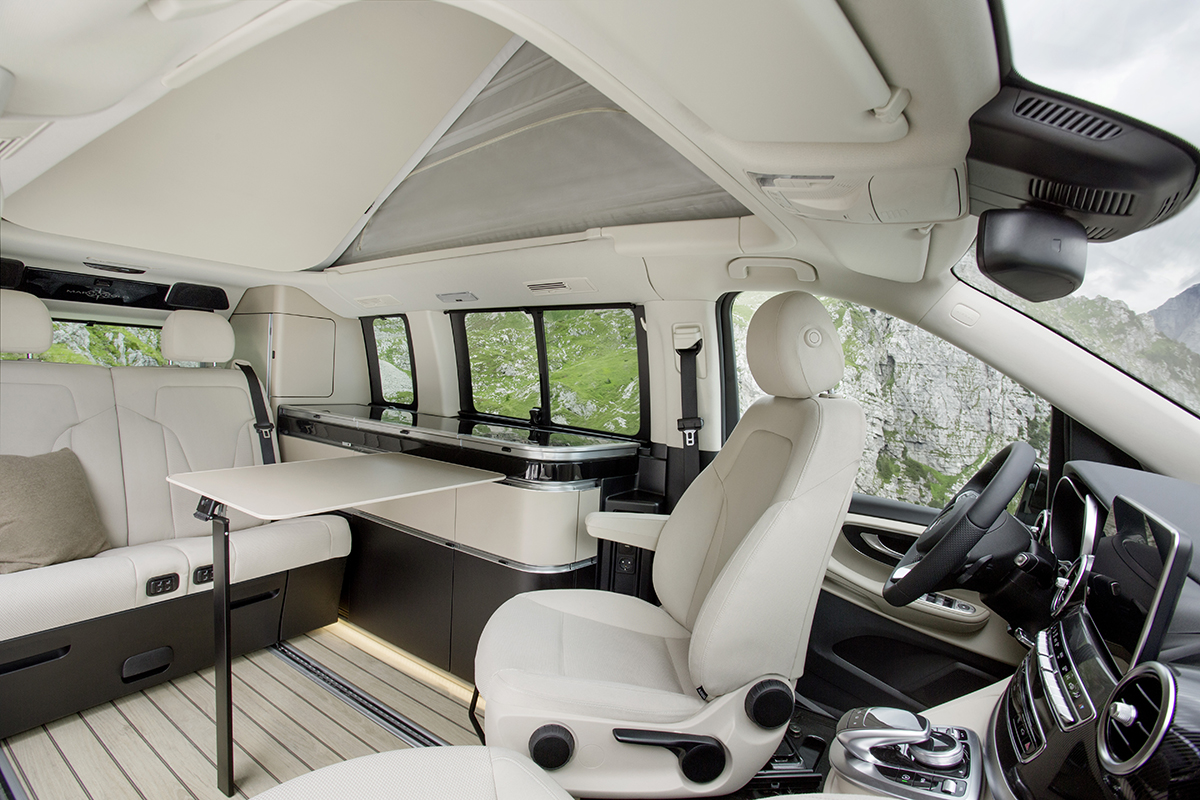
The Mercedes-Benz Marco Polo features a compact kitchenette, swivelling seats and a pop room for added room as well as extra sleeping space. Image courtesy of Mercedes-Benz
Our route took us on a tour around the edge of Cornwall, which did mean encountering several remote cliff-tops, but it’s actually harder than you think to find camping friendly spots that aren’t on private land or somewhat precarious. Also if you want to utilise the mood lighting, it’s necessary to occasionally plug in and charge up. We didn’t mind the campsites though, even the busier ones. Tucked up inside with the doors shut and curtains drawn, we felt snug and enclosed in own little space pod. It took us a while to work out the best layout for daytime usage; there was a lot of swivelling seats and moving things in and out of different cupboards but after a few days, we had it all figured out.
We spent four nights sleeping in the camper, and could have easily spent more. It is able to accommodate up to four guests sleeping, but it would be tight with more than two sharing the space unless they were small children. Also it’s worth noting that it feels a bit too slick for climbing in and out of with sandy feet and wet suits, and I wouldn’t imagine it’s the best environment for dogs; we became oddly precious about sweeping the wood panelled flooring, more out of anxiety than house pride (this is probably due to the fact that we were renting).
On our final night, we found the perfect perch on the edge of a cliff above St. Mawes. We woke to the sun skimming pink and gold across the surface of the sea.
For more information visit: mercedes-benz.co.uk

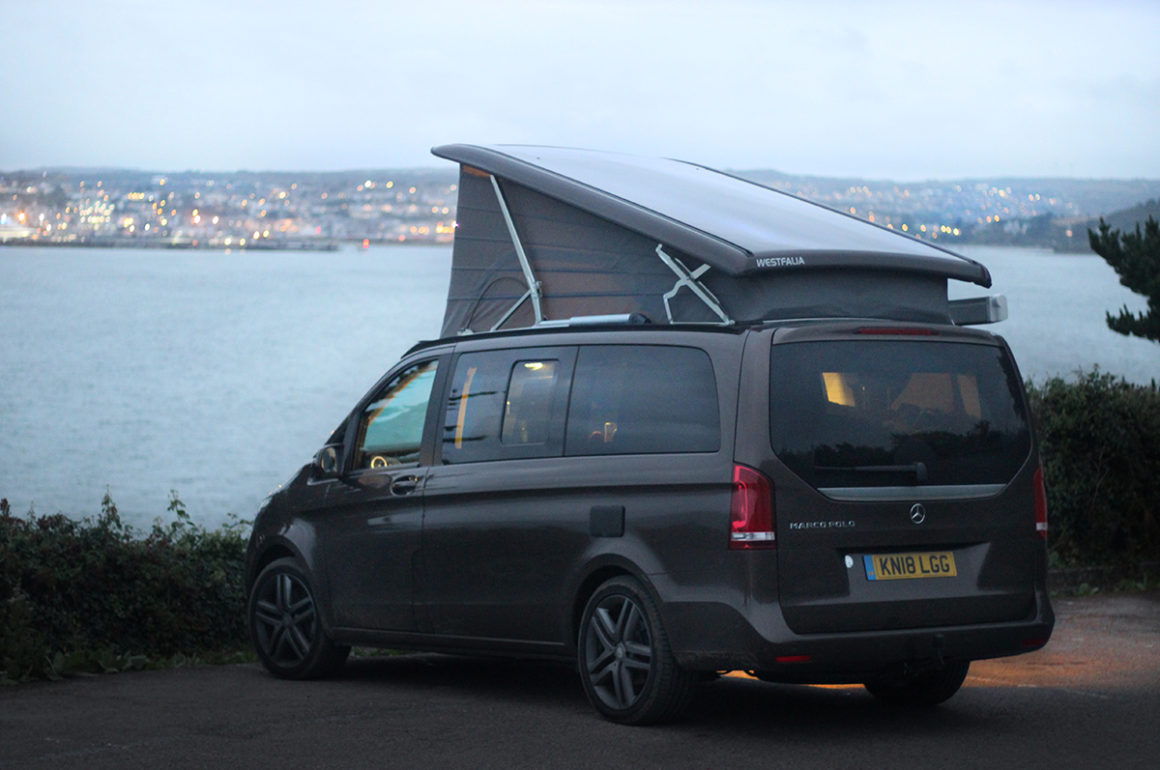
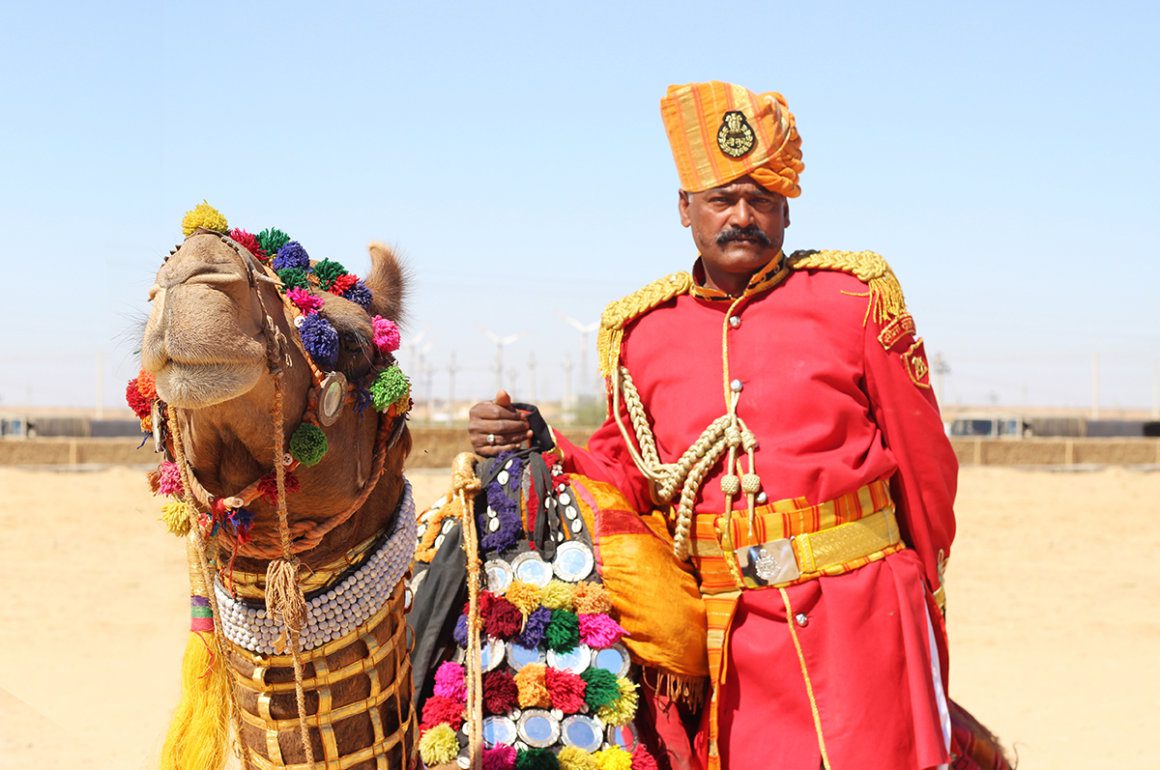
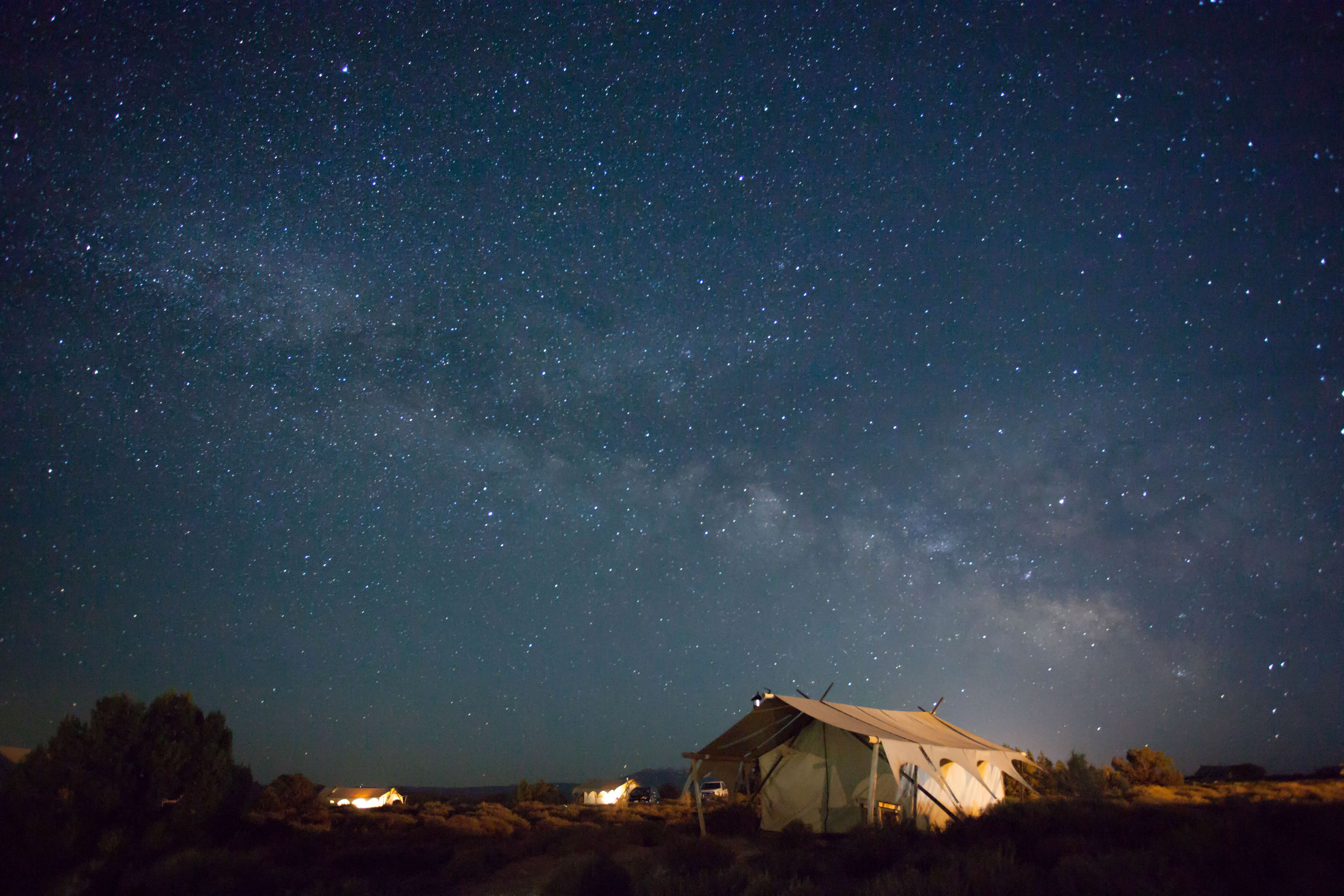
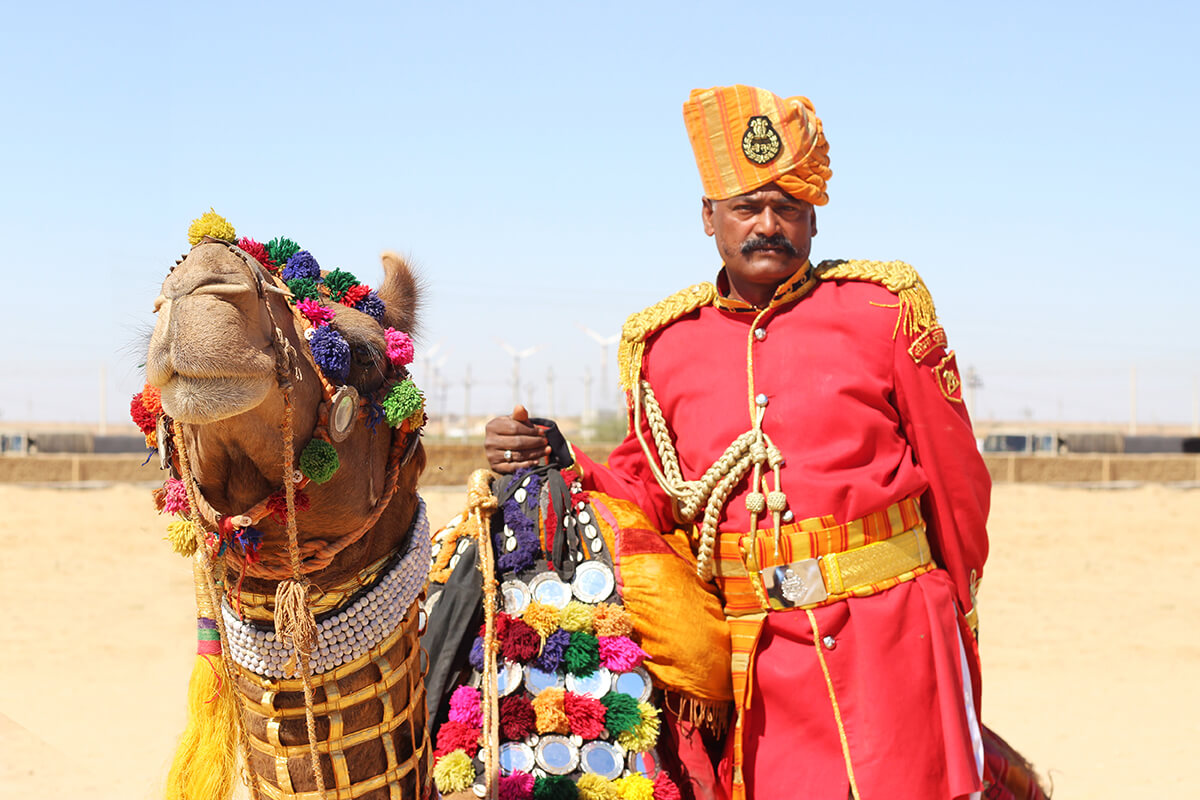
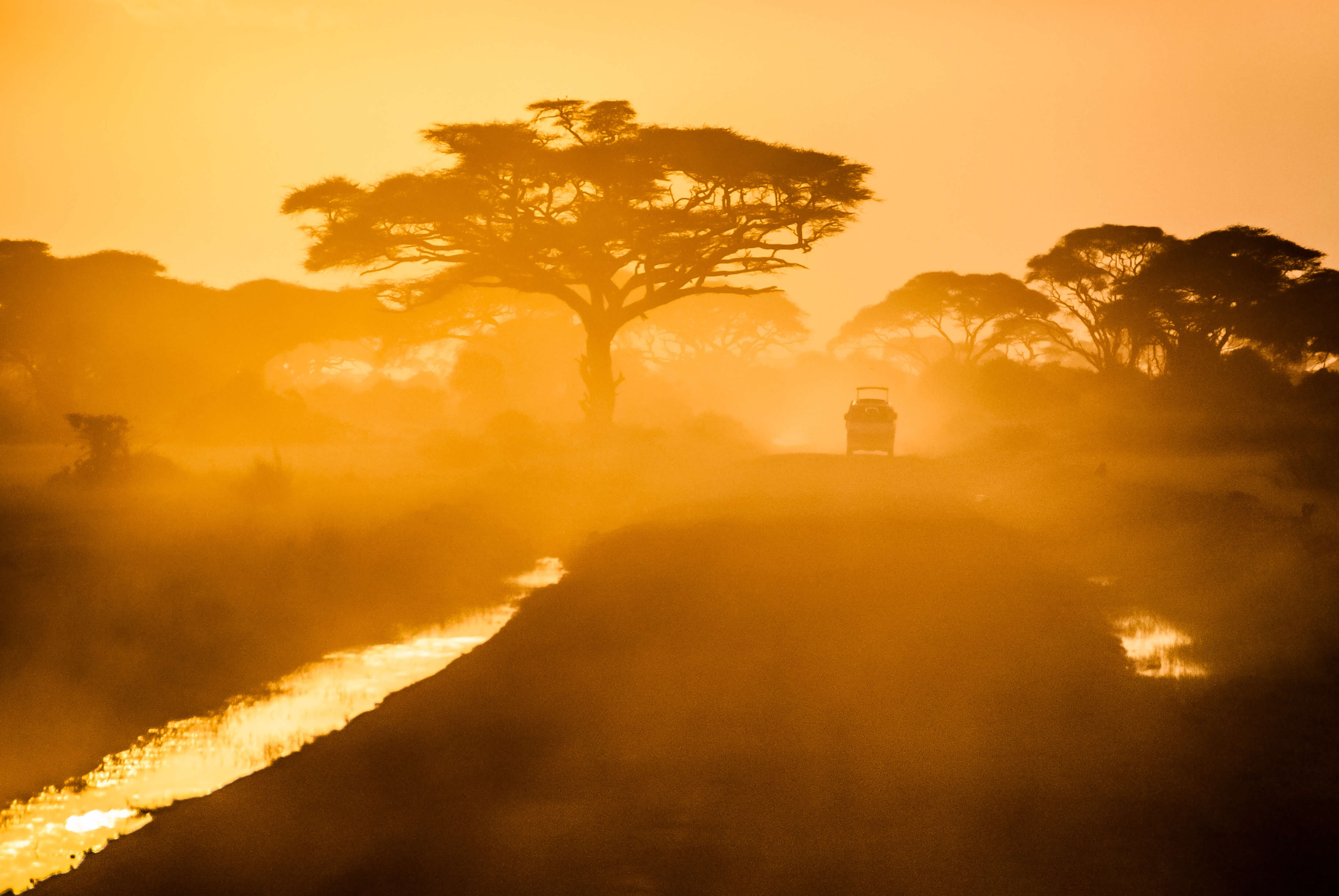





Recent Comments